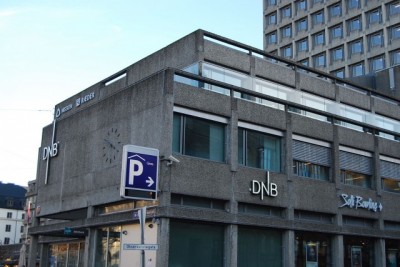Large Norwegian bank DNB claimed in a report to the government in December 2014 that it does not operate its Luxembourg subsidiary for tax reasons and that its wholly owned unit DNB Luxembourg “does not help its customers avoid taxes.” Rather, the bank claimed, its employees “function as discussion- and conversation partners on financial issues, and offer legal and legitimate tax planning for customers who live abroad.”

The claims were made in an explanation of its Luxembourg activities sent in December 2014 to the government ministry in charge of the state’s investments in Norwegian companies. The state has a 34 percent stake in DNB, and government officials have been shaken by documentation revealed this week that DNB Luxembourg made it possible for wealthy “private banking” customers to stash assets in tax havens and avoid taxation. DNB’s customers in Norway are upset as well, according to a poll conducted by research firm InFact for newspaper VG. Fully 67 percent of those responding said their confidence in DNB has declined.
Trade Minister Monica Mæland said earlier this week that she had specifically asked DNB executives in 2014 whether the bank was involved with tax havens, and had been told it was not. On Friday Mæland’s ministry revealed a two-page document containing DNB’s own accounting of its Luxembourg operation, as of 16 months ago.
Luxembourg a ‘natural’ base
DNB wrote that most of the customers of DNB Luxembourg are Norwegians living outside Norway. The customers are provided with accounts pegged to various currencies, means for paying bills, managing assets and obtaining credit, according to the document. DNB Luxembourg’s main purpose, though, was said to be “private banking, investment advice and the financing of vacation homes in Spain and France.”
DNB Luxembourg was said to have customers living in 62 different countries, “but most live in Spain, France and England,” the bank wrote. Luxembourg was said to be a “natural” based “purely geographically,” to serve customers in Europe, with DNB describing Luxembourg as a “well-regulated bank and finance center with political stability.” Luxembourg’s “good framework for banking and a strong economy contribute to a secure and good starting point for DNB’s customers’ private economy,” the bank wrote.
Luxembourg was also described as “private banking center number-one” in the EU, with 148 banks represented. “All Scandinavian banks of a certain size therefore have operations in Luxembourg,” DNB informed the ministry, “and it would be unnatural if DNB didn’t also have them.” DNB pointed out that Norway’s own central bank, Norges Bank, also had a subsidiary in Luxembourg that manages the European real estate investments held by the state pension fund known as the “oil fund.”
DNB insisted that it did not maintain its operation in Luxembourg for tax reasons, either to reduce or avoid taxes itself or to help customers do so. DNB also stressed that its Luxembourg operation had permission from Norway’s financial regulatory agency Finanstilsynet “to register customers’ portfolios in the bank’s name on shareholder lists of companies (so-called ‘nominee registration’),” the practice that reportedly is at the heart of the controversy over this week’s revelations.
Stressing legality of it all
DNB thus stressed that its practices in Luxembourg are legal, although Prime Minister Erna Solberg has said she believed them to be “unethical.” DNB also wrote in 2014 that taxation of Norwegians living in Luxembourg was regulated by a bilateral agreement between the two countries, and that Luxembourg had agreed to disclose Norwegians’ account balances at its local banks and financial institutions.
DNB also noted that each individual customer is responsible for remaining informed of tax rules and what applies where they live. DNB also claimed it was no more difficult for state authorities to monitor banking activities in Luxembourg than in Norway.
Mæland’s ministry, meanwhile, has asked for an external examination of its own efforts and ability to monitor the operations of the businesses like DNB in which the state holds stock. Accounting firm PricewaterhouseCoopers (PWC) was retained to carry out the examination of “various aspects” tied to how the state follows up on company operations, especially in regards to corruption concerns.
PWC is charged with examining the role and responsibility of boards of directors to prevent corruption, how companies should work to prevent corruption and how the ministry’s own methods of monitoring partially state-owned companies could be improved. Its report is due in May.
newsinenglish.no/Nina Berglund

